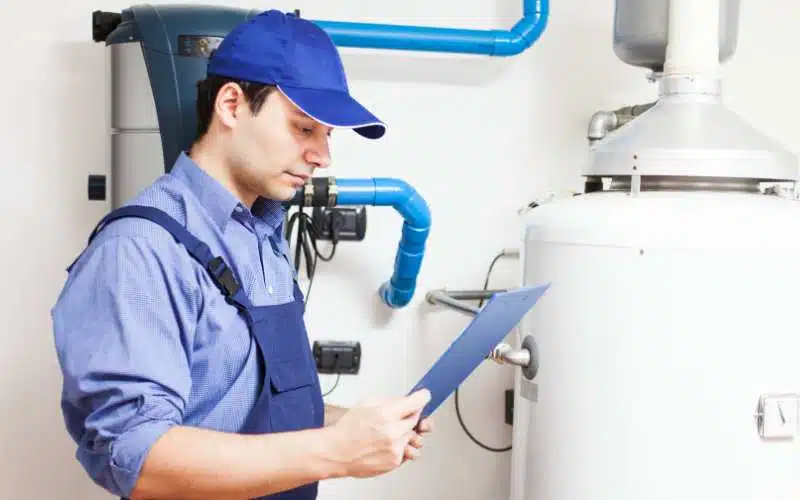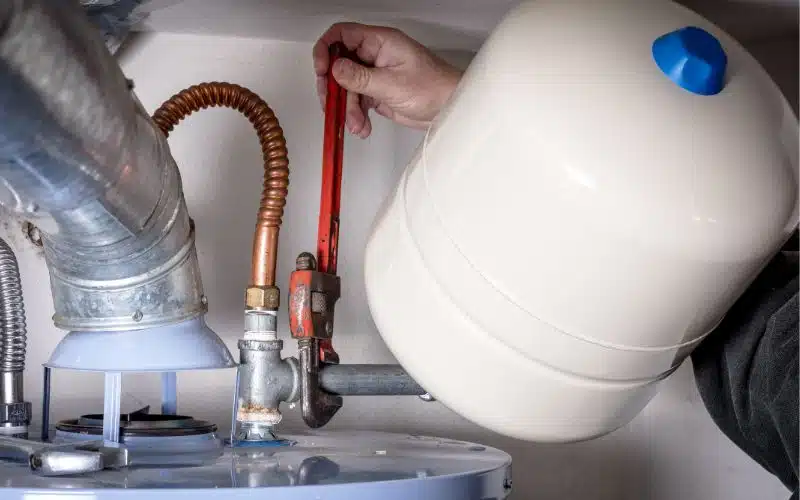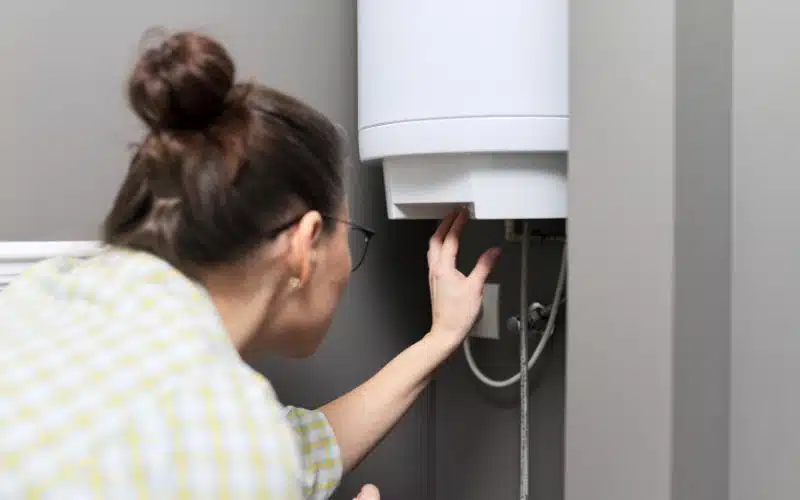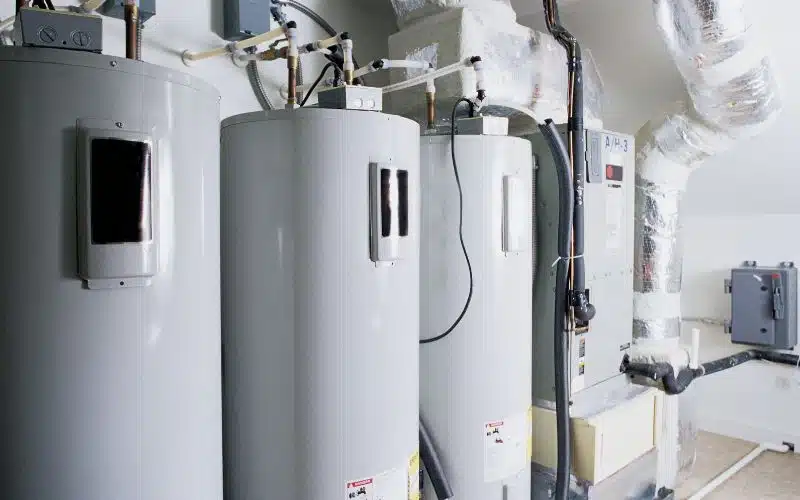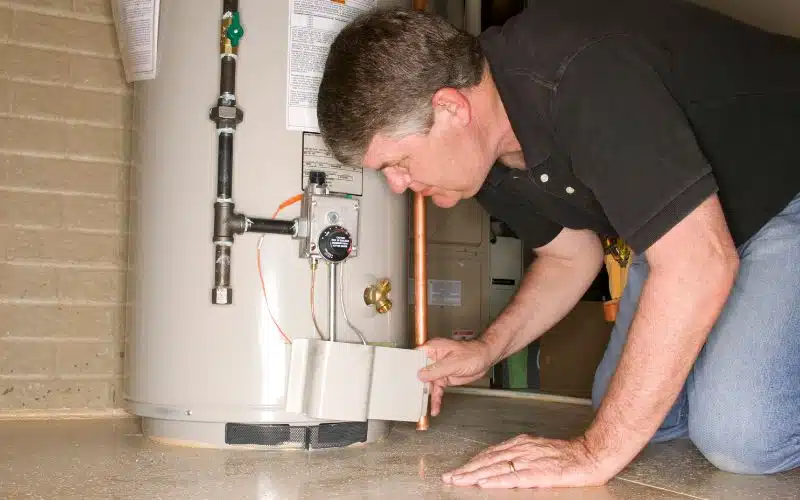When choosing a reliable and efficient water heater for your home, Rheem has long been a trusted name in the industry.
With a legacy of innovation and a commitment to sustainability, Rheem has become a chosen brand for most homes. But beyond functionality, are Rheem water heaters energy-efficient?
Rheem water heaters are energy efficient. The brand has gained recognition for its energy-efficient design and remarkable performance. Most Rheem water heaters exceed the industry energy-efficiency standards, making them effective competitors in the market.
Whether you’re considering an upgrade or simply looking for ways to reduce your energy consumption, Rheem water heaters could be the solution you’ve been searching for.
Read on as this article highlights the key features and technologies that enhance Rheem water heaters’ energy efficiency, paving the way for a greener and more cost-effective future.
What is the Energy Efficiency of Rheem Water Heaters?
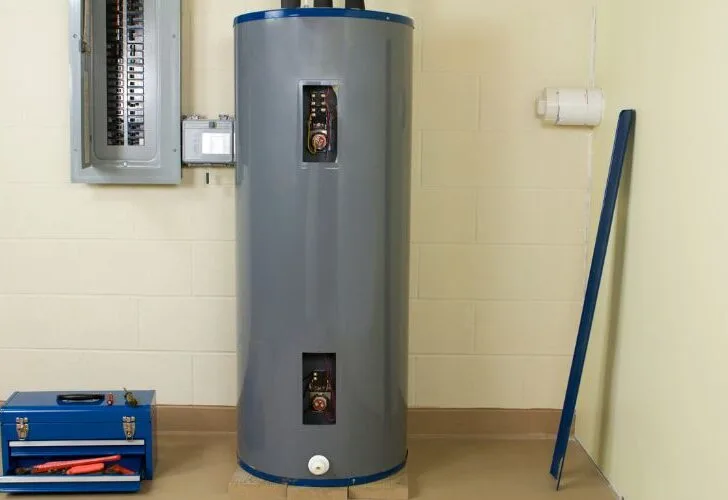
Most Rheem water heaters have an energy efficiency rating of about .70. These water heaters meet and exceed industry standards for energy efficiency.
Rheem often offers models with higher EF ratings, which indicates better energy efficiency and potentially lower operating costs.
In the water heater market, Rheem has established itself as a leading brand synonymous with reliability and innovation.
The design of Rheem water heaters focuses strongly on energy efficiency, aiming to minimize energy consumption without compromising performance.
One of the key indicators of a water heater’s efficiency is its Energy Factor (EF) rating.
The EF rating considers various factors, including standby heat loss, recovery efficiency, and energy input, to provide a standardized measure of a water heater’s overall efficiency.
Rheem offers a wide range of water heaters with varying EF ratings to suit different needs and preferences.
Some models boast exceptionally high EF ratings, meaning they convert a larger percentage of the energy input into hot water while minimizing energy usage.
Rheem incorporates innovative technologies into its water heaters to enhance energy efficiency and reduce environmental impact.
One such technology is the EcoNet Smart Thermostat, which allows homeowners to monitor and remotely monitor and control their water heater’s performance.
Users can optimize energy usage based on their specific requirements by adjusting temperature settings and scheduling operations, leading to significant energy savings.
Another notable feature of Rheem water heaters is advanced insulation materials. Improved insulation helps minimize standby heat loss and ensures the use of less energy while the water is awaiting use.
Rheem’s dedication to insulation technology translates into reduced energy consumption, positively impacting the environment and your utility bills.
Energy efficiency is beneficial for the environment and homeowners’ wallets and is encouraged and rewarded by various government programs.
Many Rheem water heaters meet the criteria for energy efficiency incentives and rebates offered by local and federal agencies.
These incentives are an added advantage, making the switch to an energy-efficient Rheem water heater even more attractive.
Are Rheem Water Heaters Star Rated?
Yes, Rheem offers water heaters that are Energy Star rated. Energy Star is a program developed by the U.S. Environmental Protection Agency (EPA) that certifies energy-efficient products.
Water heaters that carry the Energy Star label meet or exceed strict energy efficiency guidelines set by the EPA.
Rheem offers a range of water heaters, including both tankless and tank-type models, that are Energy Star certified.
These models allow it to provide energy savings and reduce greenhouse gas emissions compared to conventional water heaters.
Energy Star-rated Rheem water heaters typically feature advanced technology and insulation to improve efficiency and minimize heat loss.
Are Rheem Hybrid Water Heaters More Energy Efficient than Manual?
Rheem hybrid water heaters are generally more energy efficient than traditional manual water heaters.
Hybrid water heaters combine the benefits of both tankless and conventional tank water heaters to provide increased energy efficiency.
Rheem hybrid water heaters utilize a heat pump technology that extracts heat from the surrounding air and transfers it to the water rather than relying solely on electrical resistance heating elements.
This heat transfer process is much more efficient than generating heat directly using electricity, resulting in significant energy savings.
Compared to manual water heaters, Rheem hybrid models can provide energy savings of up to 60% or more, depending on usage patterns and the chosen model.
This increased efficiency can translate into substantial cost savings on energy bills over time.
Additionally, Rheem hybrid water heaters often feature advanced features like programmable settings, vacation mode, and leak detection, enhancing their energy-saving capabilities and overall convenience.
However, it’s important to note that the energy efficiency of any water heater depends on various factors, including the specific model, usage patterns, local climate, and installation conditions.
It’s recommended to research and compare different models, consult with a professional, and consider your specific needs before making a purchasing decision.
How Can You Tell If Your Water Heater Is Energy Efficient?
Energy efficiency is a crucial consideration for household appliances, including water heaters.
An energy-efficient water heater not only helps reduce your carbon footprint but also saves you money on utility bills.
Some indicators that can help you determine whether your water heater is energy efficient include;
#1. ENERGY STAR Certification
One of the easiest ways to identify an energy-efficient water heater is to look for the “ENERGY STAR” certification.
The “ENERGY STAR” label indicates that the appliance meets or exceeds stringent energy efficiency standards set by the U.S. Environmental Protection Agency (EPA).
The design of Water heaters with this certification allows them to consume less energy, resulting in reduced greenhouse gas emissions and cost savings.
#2. Energy Factor (EF) Rating
The Energy Factor (EF) rating measures a water heater’s overall efficiency. It represents the ratio of useful energy output (hot water) to the total energy input (fuel or electricity).
The higher the EF rating, the more efficient the water heater. Different water heaters have different EF rating calculation methods, so comparing ratings within the same category is essential.
#3. Tank Insulation
An energy-efficient water heater typically has sufficient tank insulation.
Adequate insulation reduces standby heat loss, which occurs when the heated water inside the tank loses heat to the surrounding environment.
Look for water heaters with insulation layers like foam or fiberglass. Newer models often feature improved insulation techniques to minimize heat loss and maximize energy.
#4. Recovery Efficiency
Recovery efficiency refers to how efficiently a water heater can heat incoming cold water to the desired temperature.
High recovery efficiency means the water heater can heat water quickly, reducing the time it takes for the heater to reheat the tank after using hot water.
A faster recovery time can help minimize energy wastage and improve overall efficiency.
#5. Tankless Water Heaters
Tankless water heaters, also known as on-demand water heaters, are inherently energy efficient.
Unlike traditional storage tank water heaters that continuously heat and store water, tankless models only heat water as needed.
This “on-demand” functionality eliminates standby heat loss and can save significant energy over time.
Additionally, tankless water heaters have a longer lifespan than storage tank heaters.
#6. Solar or Heat Pump Water Heaters
Consider alternative options such as solar or heat pump water heaters if you’re looking for highly energy-efficient solutions.
Solar water heaters use the sun’s energy to heat water, reducing reliance on traditional energy sources.
Heat pump water heaters extract heat from the air or ground, making them more efficient than conventional electric or gas heaters.
Both options can provide substantial energy savings and contribute to a greener environment.
Below is a table comparing solar and heat pumps.
| Solar Pump | Heat Pump |
|---|---|
| Generates electricity in addition to heating | More efficient |
| It does not require floor space for installation | More durable |
| They’re less expensive to run | Cheaper to maintain |
Rheem water heaters offer an impressive level of energy efficiency, making them a smart choice for homeowners looking to reduce their energy consumption and save on utility bills.
With advanced technologies, such as high-efficiency burners and superior insulation, Rheem water heaters deliver excellent performance while minimizing energy waste.
Whether you opt for a tankless or traditional model, Rheem water heaters provide reliable hot water while prioritizing energy efficiency, making them a worthwhile investment for any home.
